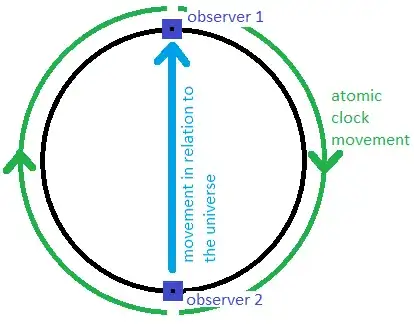Although we don't realize it, we know that we are moving very quickly in universe. The Earth rotates on its axis at 1,600 km/h, and around the Sun at 100,000 km/h. The star orbits the center of the Milky Way at 850,000 km/h. And our galaxy travels at nearly 2.3 million km/h!
Therefore, at each instant, we have a direction and velocity in relation to the universe. Right?
According to Einstein's theory of relativity, the faster we move in space, the slower our time.
The question I have is: If we send an atomic clock in the opposite direction that we are moving in the universe, will its time slow down or speed up? Because in relation to us it is moving faster, but for the Universe it is moving slower than we are.
If that's the case, can we measure our current speed and direction using just atomic clocks?
EDIT:
I've noticed that this question is basically another situation about the twins paradox.
But I'm still not sure about the measurement issue. I tried to represent a way to measure without depending on accelerations (image below). Can observer 1 and observer 2 know exactly the exact moment the other is measuring in order to determine when time on one clock passes faster than the other?
